By Shelita Birchett Benash
Positionality
“The idea of ‘change’ is not an abstraction: change is us. It is we who change, and so we change our social situations” (McNiff, 2013).
I am an advanced-year MSW student at Adelphi University School of Social Work and a multidisciplinary artist with a professional theatre background. My ceramic sculpture and stained-glass and mirror mosaics have been featured in galleries, museums, and public art exhibitions. Storytelling is an integral aspect of my life’s work. I understand the power of personal narrative and community engagement through public art and gallery curation.
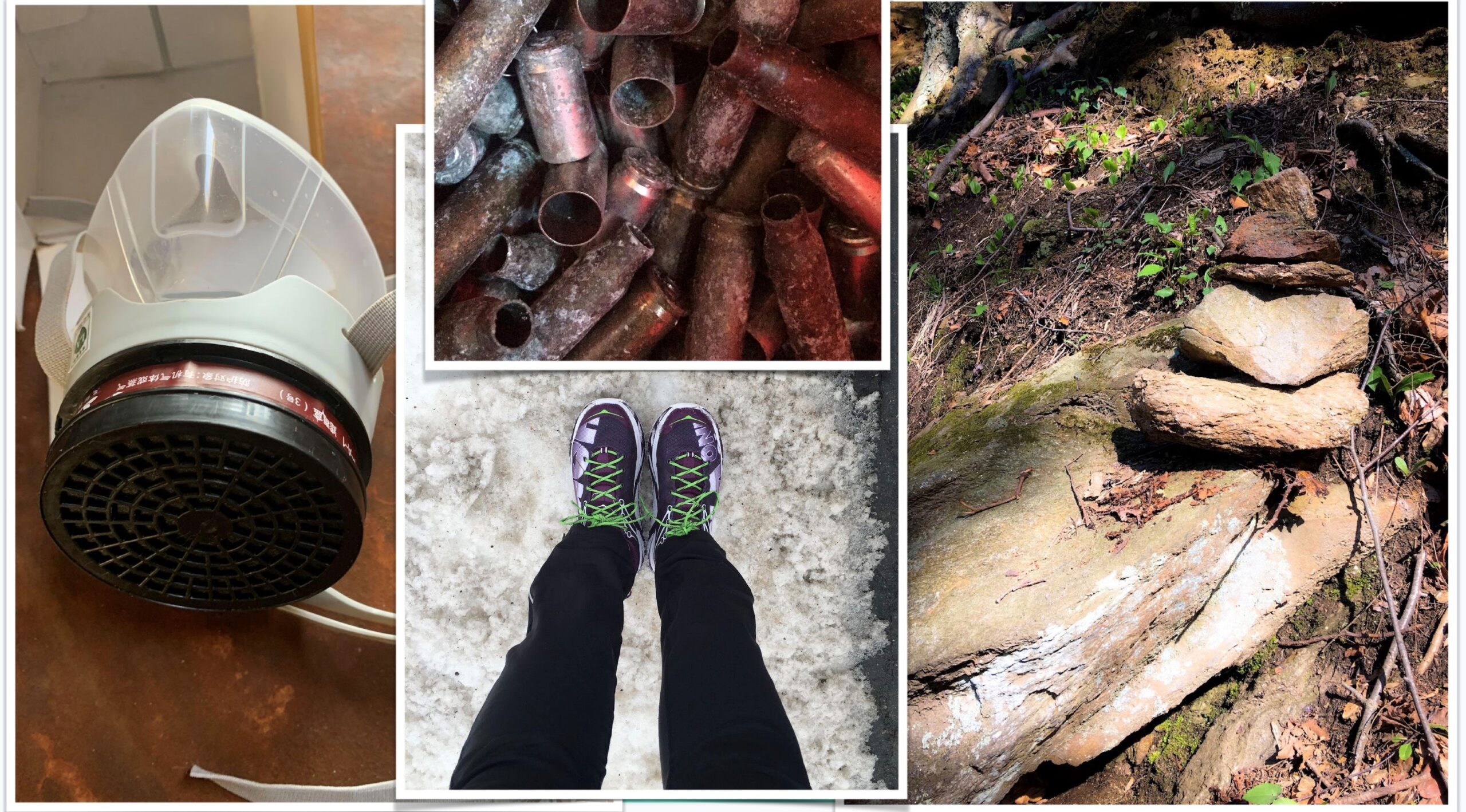
Workshop with PhotovoiceWorldwide
I was invited to attend a Photovoice Facilitation training led by Stephanie Lloyd, Evaluator and Educator for PhotovoiceWorldwide. I was excited and inspired by how the Photovoice methodology could also be used as a therapeutic and psychoeducation intervention with individuals and groups.
In January 2021, principal investigators Dr. Newransky and Dr. Rozario invited me to be a graduate research assistant on the Photovoice Participatory Action Research Team that also includes Ph.D. candidate, Julissa Adams-Torres. I was tasked with leading the permanent participant photo exhibition inside the Emma L. Bowen Community Service Center in New York. Formerly known as the Upper Manhattan Community Health Center, the Bowen Center is in the bustling heart of uptown Harlem, where it has been serving the healthcare and social service needs of an ethnically and culturally diverse community since 1968. The Bowen community members who access services are primarily Spanish-speaking and part of New York City’s Latin American diaspora.
Unfortunately, that winter, with the world engulfed in the COVID 19 pandemic, group meetings with Photovoice participants at the Bowen Center became impossible. However, the IT staff at the Center established Zoom capability inside a conference room and built individual video and sound pods where the participants were each fitted with headphones and microphones, so that the participants could connect with the project team virtually.
A Permanent Photovoice Exhibition
When I met with my MSW policy professor, Dr. Newransky, and Rue Silver, Bowen Expansion Grant Manager, about the conception, design, and installation of a permanent Photovoice exhibition, it was immediately apparent that the best method for preserving the archival quality of the exhibition would be in the form of a museum gallery-style presentation of participant photographs.
As an artist, I understand aesthetics, and as an MSW student, I can engage with aspects of symbolic interaction theory within object presentation. These concepts merge as they relate to how viewers would experience matted and framed participant photographs with museum-style placards telling their stories.
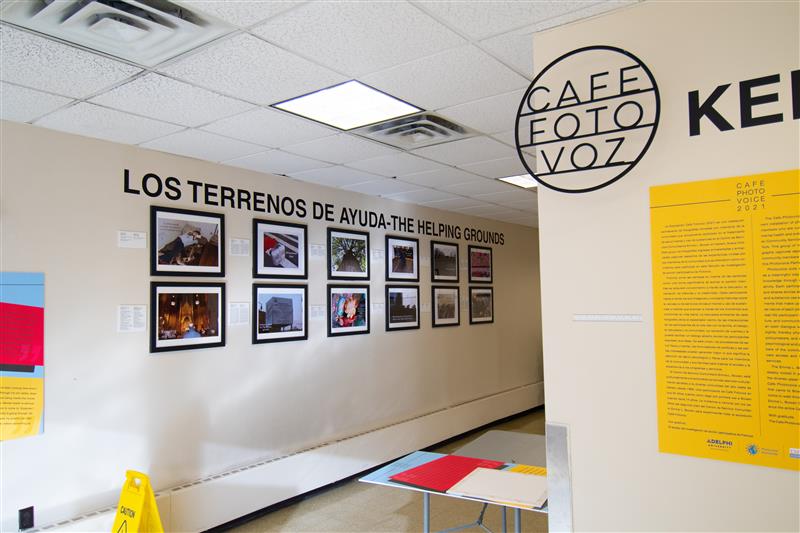
The concept for a participant-led exhibition began to develop further during those first sessions, where the participants shared photographs and stories of their lived experiences regarding mental health and substance use recovery services at the Bowen Center. The participants shared intimate moments of their lives within their families, communities, nature, and work. Via Zoom, participants shared and discussed their photos on the screen and selected which images to include in the exhibition.
Using images and captions, participants capture unique moments that tell stories and present meaningful metaphors for their experiences with mental health and recovery.
The research team also assisted participants in creating the unique presentations they desired. For instance, I am helping one visually impaired participant to make photo collages using their photos.
As I listened to the community members share stories of their lives, specific phrases would jump out, such as, “Keeping my head to the sky,” “The helping grounds,” and “Just keep smiling.” The intention is for the exhibit viewer to hear the community member’s voice while gazing directly at their photographs, their words, and the image melding together as one. During the installation of these words, our project team experienced feelings of great appreciation from the Bowen administration and staff. And we are working on incorporating audio caption recordings featuring the participants’ voices that will also accompany their photographs as part of the virtual exhibit.
As the project progressed, participants developed themes expressing the significance of what Bowen means to the lives of the community members who access its services. One participant in her 50s has been coming to the Bowen Center since she was 14 years old. The long-standing meaningful relationships inspired the idea for the participant quotes and large black lettering that borders and wraps the clinic walls. When visitors enter the second floor from the elevator, they are met with inspirational words chosen by participants, in both Spanish and English, that say, “Welcome, Care, Neighbors, Community, and Keeping my head to the sky.” And there is one quote, attributed to Emma L. Bowen herself, that holds special meaning for the Bowen community: “The problems of living.”
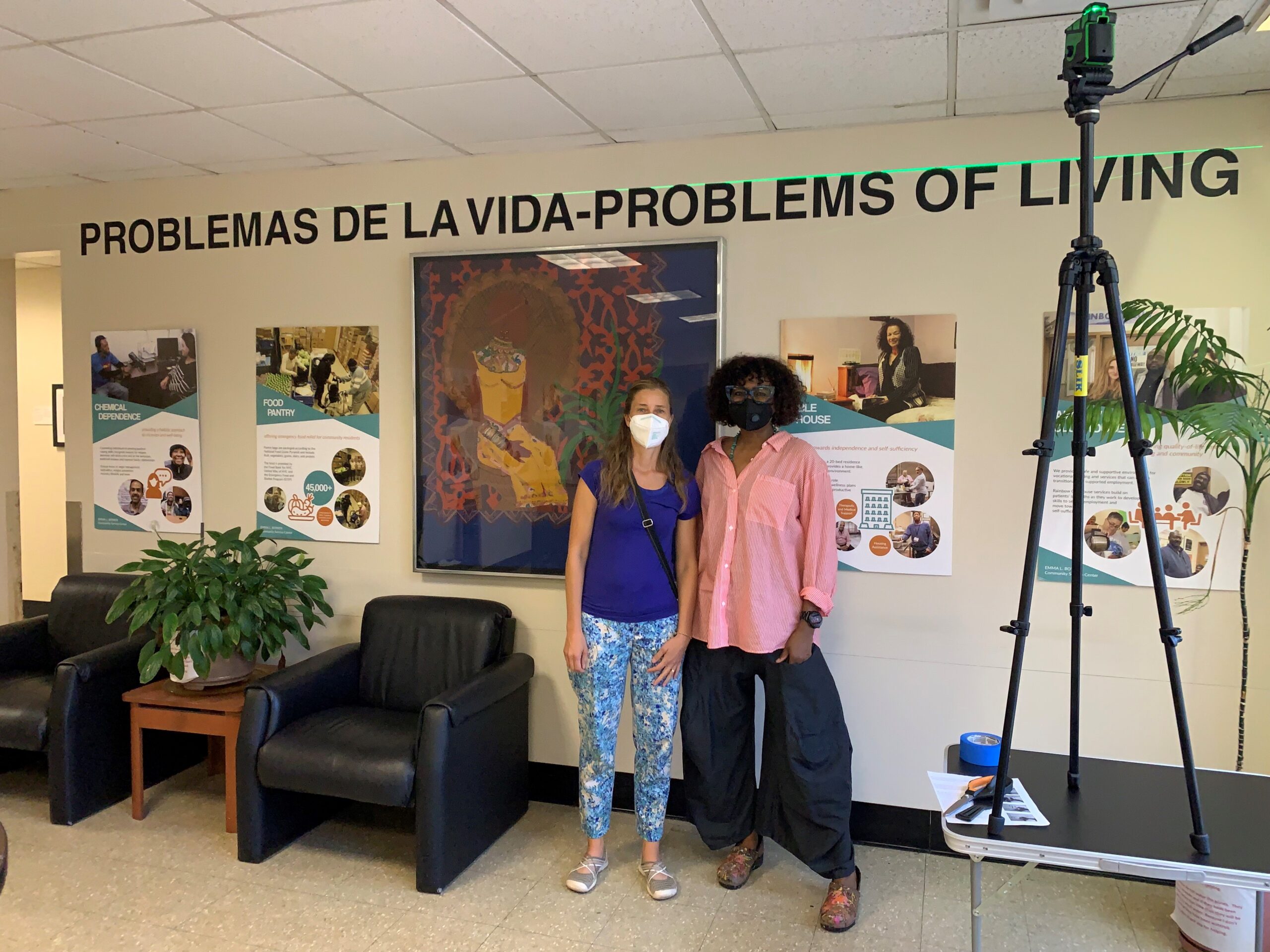
Photovoice Action Reflection
Photovoice is deeply ethical work rooted in dignity, respect, the worth of the person, and informed consent. Stephanie Lloyd has played a critical role in guiding the Photovoice research team through Photovoice-related presentation, participant dialogue approach, ethics, policies, procedures, and literature review. Photovoice promotes collaborative processes, critical self-reflection, social justice, action, and change.
Curating the Photovoice exhibition has afforded me the opportunity to collaborate with other Adelphi professional student artists, including a graphic design student, a photographer and fellow OMSW colleague, and a web designer. As a result of these social justice-driven arts working relationships, I am gaining a powerful sense of what an embodied art in social work practice means for forging connections, building communities, and facilitating discovery and growth.
One of the most beautiful aspects of Photovoice is its embedded nature. The participants and researchers work together and communicate throughout a non-hierarchical process of knowledge building with the capacity to break through language and culture barriers.
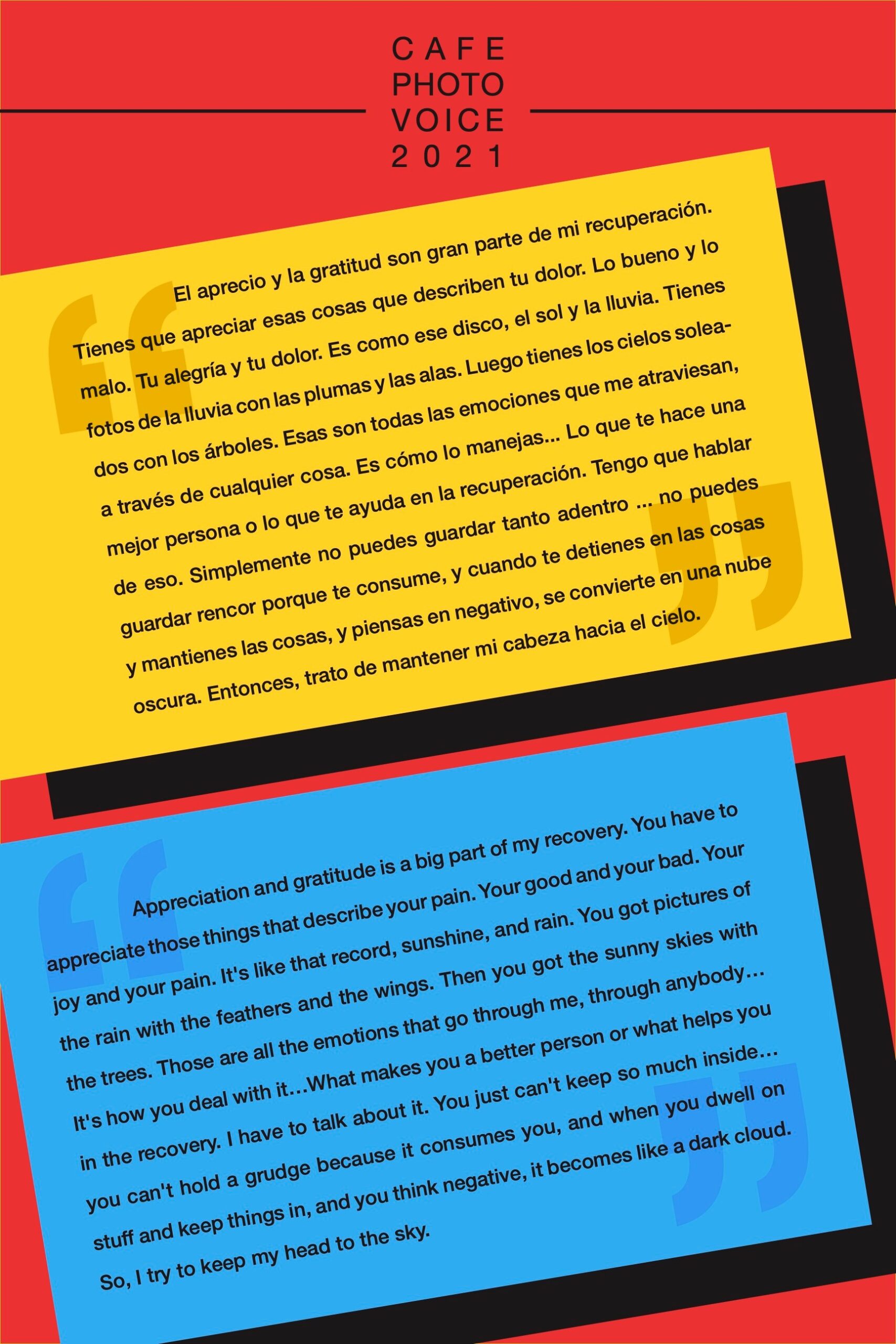
Critically-reflective dialogues where we explore thematic meanings generated from a participant’s photographs and stories of lived experiences are an essential aspect of the qualitative research coding process, which includes humanity, ethics, nuance, and accountability. And there is a beauty of stakeholder responsiveness to the photovoice stories, as we witness swift changes, such as hiring a new bilingual Spanish-speaking care manager for Bowen community members. In Photovoice research, I see real-time community member voices translated into new knowledge that promotes organizational change with policy implications.
Over the last year, I have shared my Photovoice research experience in my MSW coursework as it resonates with the embodied and activated social work practice that I envision. I am incredibly grateful for this art in social work education opportunity with Adelphi and PhotovoiceWorldwide because my deepest motivations for entering the social work profession spring from my desire to take my art and creativity to a healing, connected, and regenerative place.
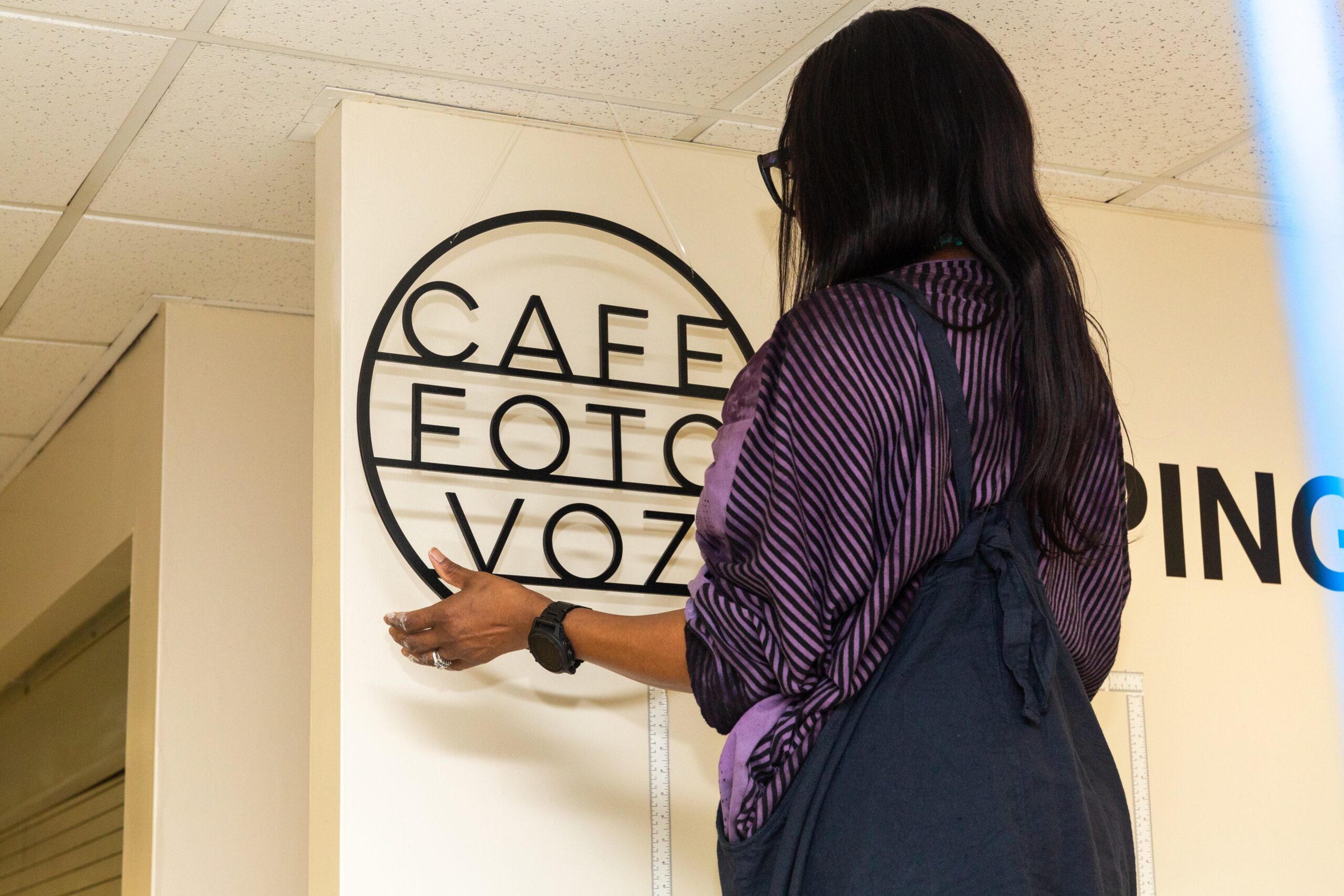
Graphic design credit: Kayla McGowan
Photograph credit: Lauren Weissler
